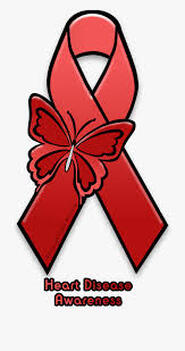Bipolar Disorder
What are bipolar moods?
Everyone has moods, sometimes people feel happy. Sometimes they feel sad or angry. They often know why they feel up or down. For example. getting a raise feels good. Arguing with a friend feels bad. Sometimes people may not know why they feel happy or sad. That's just life. But a person who swings back and forth between up and down moods for no clear reasons may have an illness called bipolar disorder.
What is bipolar disorder?
Bipolar disorder is a serious illness. It affects how a person feels, thinks and acts. Someone who has it may go from feeling depressed to feeling happy, with times of feeling normal in between. These mood changes can cause problems at work, at school or in relationship. Some people with bipolar disorder use alcohol or other drugs to try to feel better. Some think about suicide. The good news is, bipolar disorder can be treated.
Bipolar moods aren't like normal ups and downs!
The feelings are much stronger. Moods may swing from extremely high to extremely low. Because of these mood swings, bipolar disorder isn't the same as major depression. These 3 basic bipolar moods can range from mild to severe:
1. MANIC MOODS cause "high" or "up" feelings, called mania. In the early stages of bipolar disorder, manic moods may feel good. Overtime, the feelings may get stronger. They get in the way of normal thinking and behavior.
2. Depressive moods cause very sad or down feelings that don't go away.
3. Mixed Moods cause people to feel both up and down. The person's mood may change quickly from depressive to manic. The person nay even feel depressed and manic at the same time.
These moods affect how a person thinks and acts. A person with mood swings starts to have problems with everyday life at home, school or work, or out in public.
How can you know if you have it?
Bipolar disorder isn't always easy to recognize. Moods can be mild or several. They can change over a person's life. They can be different for different people. Mood swings can occur once in awhile. Or they can happen several times a day. In people with other health problem bipolar disorder may be hard to notice. Depression, anxiety, substance use or thyroid disorder can all make bipolar disorder harder to notice. Bipolar disorder must be diagnosed and treated by a health care provider.
Everyone has moods, sometimes people feel happy. Sometimes they feel sad or angry. They often know why they feel up or down. For example. getting a raise feels good. Arguing with a friend feels bad. Sometimes people may not know why they feel happy or sad. That's just life. But a person who swings back and forth between up and down moods for no clear reasons may have an illness called bipolar disorder.
What is bipolar disorder?
Bipolar disorder is a serious illness. It affects how a person feels, thinks and acts. Someone who has it may go from feeling depressed to feeling happy, with times of feeling normal in between. These mood changes can cause problems at work, at school or in relationship. Some people with bipolar disorder use alcohol or other drugs to try to feel better. Some think about suicide. The good news is, bipolar disorder can be treated.
Bipolar moods aren't like normal ups and downs!
The feelings are much stronger. Moods may swing from extremely high to extremely low. Because of these mood swings, bipolar disorder isn't the same as major depression. These 3 basic bipolar moods can range from mild to severe:
1. MANIC MOODS cause "high" or "up" feelings, called mania. In the early stages of bipolar disorder, manic moods may feel good. Overtime, the feelings may get stronger. They get in the way of normal thinking and behavior.
2. Depressive moods cause very sad or down feelings that don't go away.
3. Mixed Moods cause people to feel both up and down. The person's mood may change quickly from depressive to manic. The person nay even feel depressed and manic at the same time.
These moods affect how a person thinks and acts. A person with mood swings starts to have problems with everyday life at home, school or work, or out in public.
How can you know if you have it?
Bipolar disorder isn't always easy to recognize. Moods can be mild or several. They can change over a person's life. They can be different for different people. Mood swings can occur once in awhile. Or they can happen several times a day. In people with other health problem bipolar disorder may be hard to notice. Depression, anxiety, substance use or thyroid disorder can all make bipolar disorder harder to notice. Bipolar disorder must be diagnosed and treated by a health care provider.


